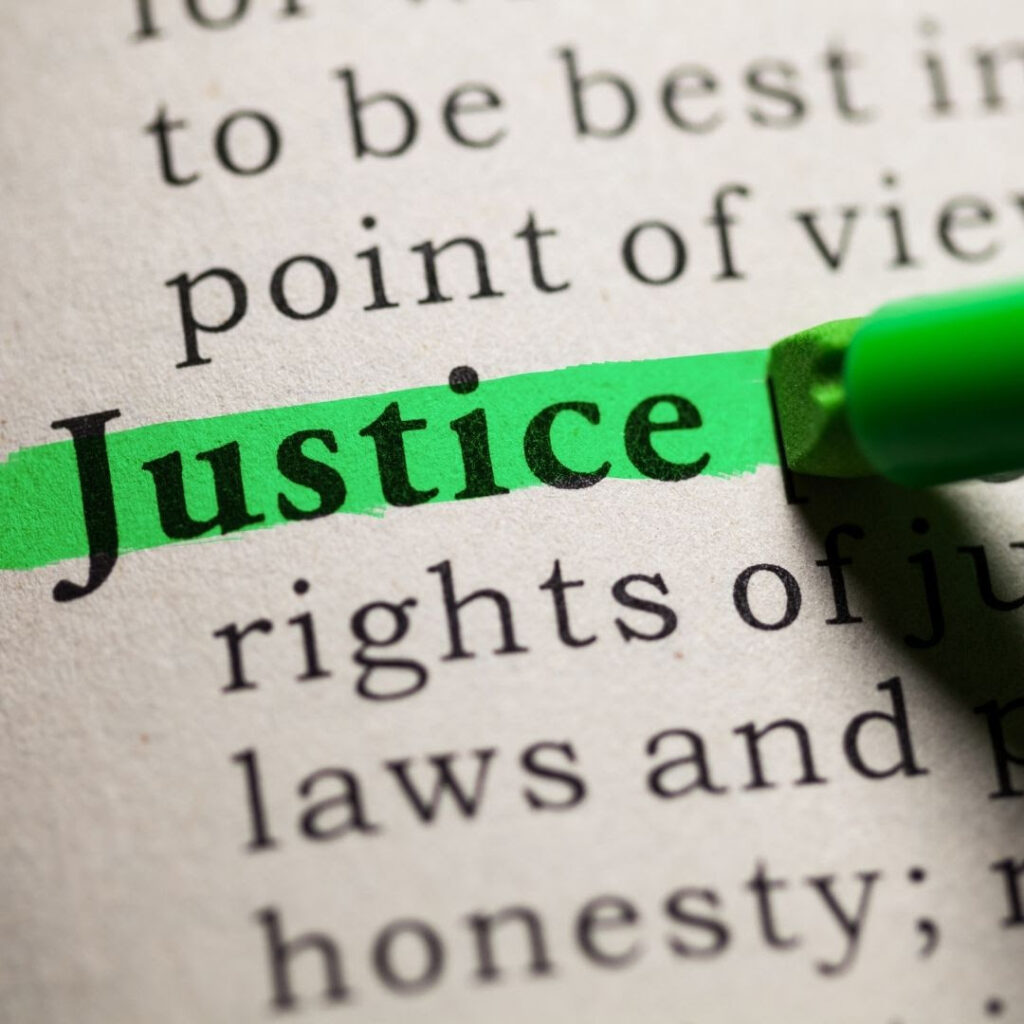April 11, 2023 Antoinette Richardson
A Few Interesting Facts About Ancient African Kingdoms
Join us Saturday morning, April 29 ( via Zoom) from 10:30 to noon (when we will discuss the book African People in World History, by John Henrik Clarke. To request the Zoom link you can email racialequitybuddies@fhcpresb.org, sign up on BREEZE or call the church office.
Are you aware of the numerous African kingdoms south of the Sahara? Africa and her people have been deliberately mischaracterized as having no culture, history, or civilization prior to the intervention of Europeans beginning in the 15th century. However, civilizations and kingdoms like Benin, Zimbabwe, Mali, and the Kongo will disabuse you of that notion and enlighten you about Africa’s glorious past.
Following are some images and a brief synopsis (with links to supporting articles) of a few of the African civilizations we will discuss on April 29. We hope you will join us.
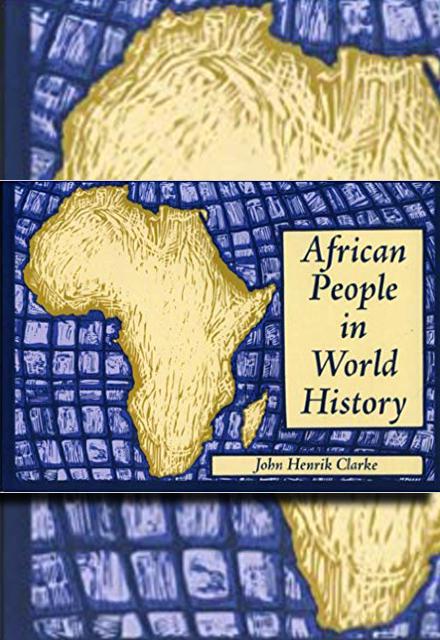
Benin 1200s-1800s
According to the 1974 edition of the Guinness Book of Records, the Walls of Benin were the “world’s largest earthworks carried out prior to the mechanical era.” Elsewhere, it is claimed that they were “four times longer than the Great Wall of China and consumed a hundred times more material than the Great Pyramid of Cheops.” Furthermore, it is asserted that the walls “extended for some 16,000 km [9,942 miles] in all, in a mosaic of more than 500 interconnected settlement boundaries,” and that it covered an area of 6,500 square kilometers (2,510 square miles). This grand project is thought to have been carried out completely by the Edo people, and it took an estimated total of 150 million hours to complete (Ancient Walls of Benin were four times longer than Walls of China. Destroyed by British in 1897 | The African History).
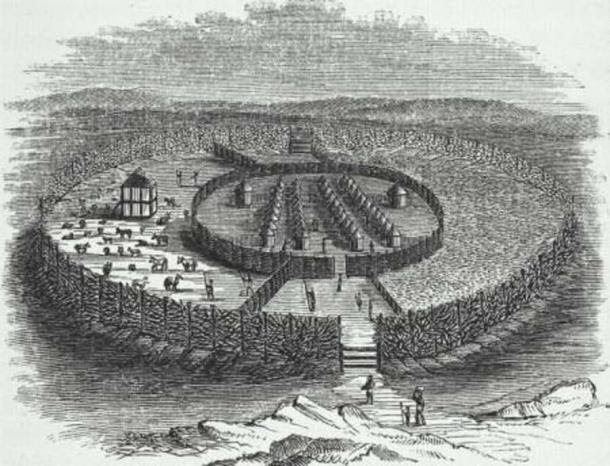
(Representational image, not the actual walls of Benin) Before the earthwork and stone walls of Benin, the ancient city was still walled off using wood and brush.)
The Kongo Kingdom, 1301-1665
This kingdom and civilization reveal the sophistication, political, military, technological, and economic advancement and structure of these African people. (The Kongo kingdom | Royal Museum for Central Africa – Tervuren – Belgium (africamuseum.be).

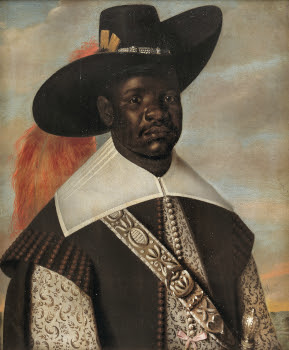
Dom Miguel de Castro was an ambassador of the Kongo kingdom in the Netherlands in the 1640’s.
Painting by Jasper Beckx (active ca. 1627-47). Oil on canvas, 75 x 62 cm. Statens Museum for Kunst, Copenhagen
Below marble portrait bust of Antonio Manuel, ambassador of the Kongo in Rome. Bust made by Francesco Capatore (1606-1630) and kept at the Battistero di Santa Maria Maggiore, Rome
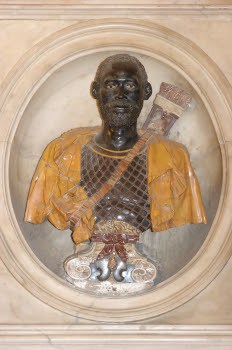
Kingdom of Zimbabwe, 1200-1450 AD
Kingdom of Zimbabwe (1220-1450 AD) – Think AfricaThis civilization was built on trade, mainly of ivory and gold, which fuelled the economy of the kingdom. They were also expert stonemasons, and examples of their centuries-old construction and stone artifacts are still standing tall to this date

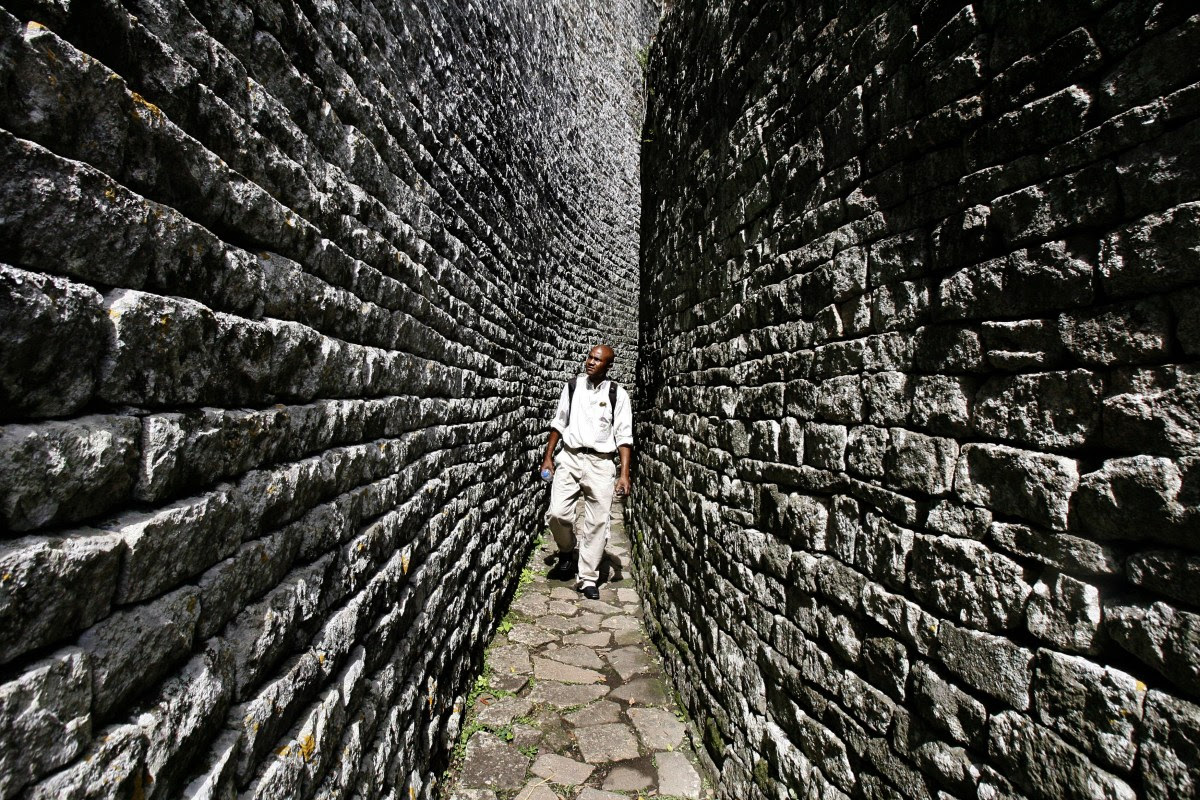
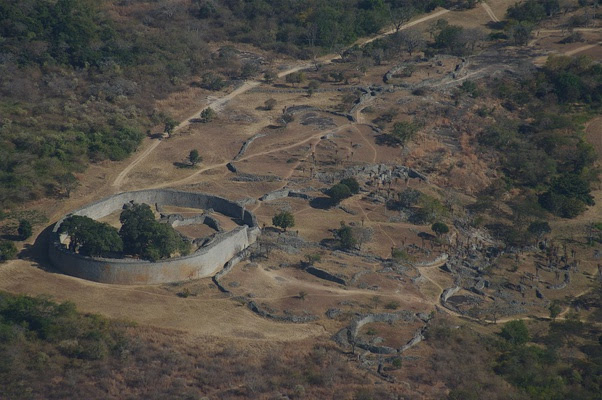
ABOVE: Aerial photograph from Wikimedia Commons of a portion of the ruins of the sprawling medieval city of Great Zimbabwe in southeastern Zimbabwe
Tags: Adult Ed, community, Immigration Task ForceFebruary 15, 2023 Antoinette Richardson
Using the Follow Me curriculum during the Education Hour on Sunday mornings (9:15-10:15 AM), we welcome you to join us by Zoom.
The following is a brief description: We forgive because God first forgives us. When we forgive one another, we participate in God’s way of being in the world. At its root, the word forgiveness draws on a Greek word meaning “to let go.” When we forgive one another, we let go of anger over wrong; we let go of a desire for getting even; we let go of the burdens of shame and guilt. To forgive is not to forget; it is an active decision to not live in the past and to build toward a future. Forgiveness does not deny the realities of sin: betrayal, violence, anger, and jealousy. It ensures that wrongs do not have the last word. The final word in forgiveness is God’s grace, available to those who seek to forgive and to move beyond separation and brokenness toward restored relationships with God and one another.
There is an Adult Reflection guide available for pick up in the office. The cost is $9.00 for those who want to contribute to its cost.
A second option for a Lenten study is the class titled -Discovering the Beloved Community in the Gospel of Matthew. This class is already in progress by Zoom on Sunday mornings from 9:15-10:15. Each session is an independent exploration. It is not too late to join. The class would be glad to have you join it.
If you wish to join, please register here: https://fhc.breezechms.com/form/448ccd.
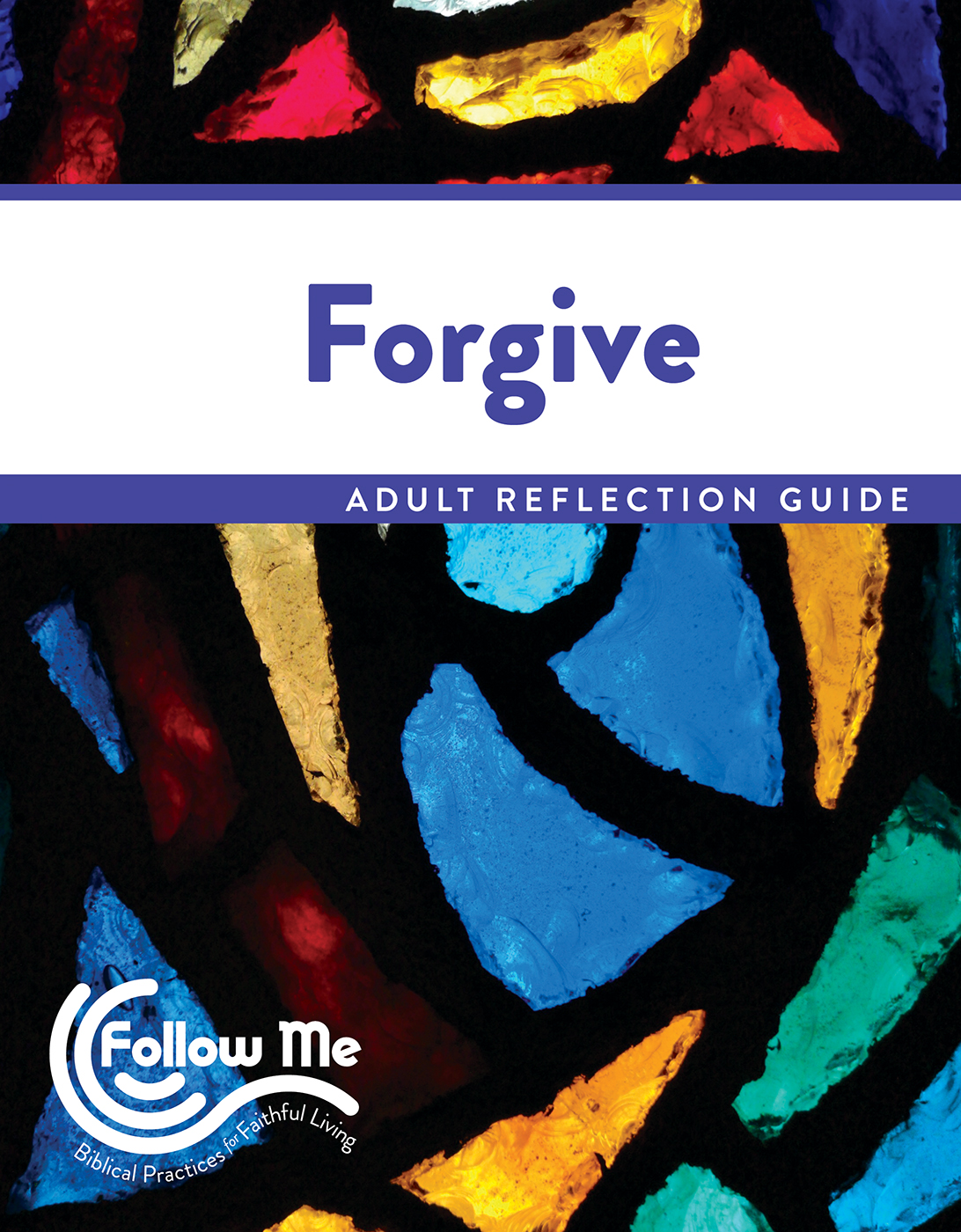
December 19, 2022 Antoinette Richardson
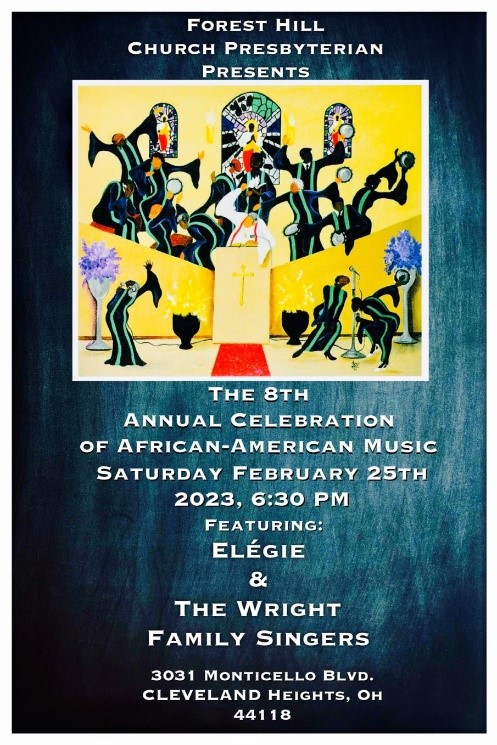
The Black History Education Committee announces a return of programming for the full month of February.
Watch for more information in the New Year!
And Save the Date for the Black History Concert on Saturday, February 25, 2023.
December 19, 2022 Antoinette Richardson
For the Winter of 2023, the Ministry of Adult Spiritual Growth is pleased to announce the following classes.
We have tried to balance our offerings of classes in a variety of areas of Spiritual Growth:
We hope these classes will help people connect with each other, building our community of faith.
About Sunday Morning Class times:
Please note that the starting time for Sunday morning classes is 9:15 AM. This gives us time to complete our classes comfortably and allows people who need to be elsewhere at 10:30 AM to arrive on time.
Study of the Book of Luke
Facilitators: Kathryn Eloff and Tom Zych
Dates and Times: Sundays, January 8 through February 19, 2023, 9:15-10:15 AM
Format: Hybrid (both in person at church and on Zoom)
Resource Text: We will use the book about the Gospel of Luke, “Good News for All,” from the Kerygma series as a common reading to begin the discussion. In addition, each week, the facilitators will send an email containing reflections and suggested readings from the Bible and other sources.
Class Description: This class continues our long tradition of Sunday morning Bible study. Luke’s Gospel is uniquely inclusive, involving all people. Good News is for the outcast and the establishment, for the religious and those searching. Luke speaks to women, to men, to the strong and healthy, to the weak and dispossessed. Its relevance today inspires faith, spirituality, and action.
To sign up, click here: https://fhc.breezechms.com/form/3a3065.
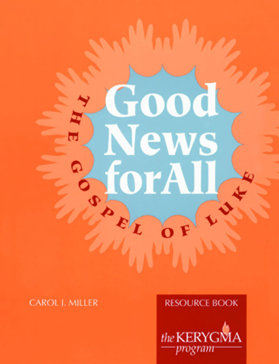
Follow Me: Biblical Practices for Faithful Living
Facilitators: Ann Williams
Dates and Time: Sundays, January 8 through February 19, 2025, 9:15-10:15 AM.
Format: Meeting by Zoom only, to include people who live outside northeast Ohio.
Resource Texts: “Make Peace” from the Follow Me series, and your own Bible
Class Description: The Follow Me classes are designed to help us to follow practices that Jesus taught for spiritual growth. As we learn about each practice, we will have ample opportunity to share our experiences, encourage each other, and build community.
To sign up, click here: https://fhc.breezechms.com/form/3a3065.
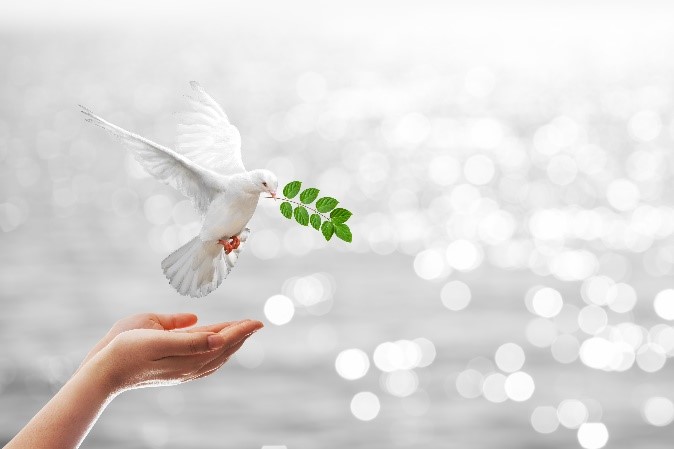
The Gospel of Matthew
Facilitator: Ron Zimmerman
Dates and Times: January 8 through April 2, 9:15-10:15 AM
Format: On Zoom
Resource Text: Your own Bible and Gospel of Matthew: God With Us by Matt Woodley, part of the Resonate series from InterVarsity Press. Though the book is out of print, it is available as an ebook through Amazon and InterVarsity Press(https://www.ivpress.com/the-gospel-of-matthew-ebook).
Class Description: Using the Bible plus the easy-to-read commentary, Gospel of Matthew: God with Us by Matt Woodley, the class will journey through the Gospel, exploring a thematic study on kingdom building (developing a beloved community) with the intent to listen for God’s voice in how to live out an active faith in real-time.
To sign up, click here: https://fhc.breezechms.com/form/3a3065.
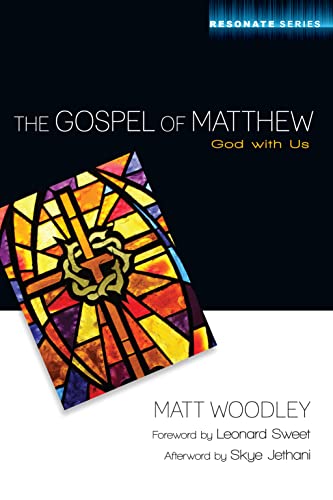
Praying with others through the Challenges of Life
Facilitator: Leslie Clement
Dates and Times: Friday afternoons, 5:30-7:00 PM, January 6- February 10, 2023.
Format: IN person at church
Class Description: Do you long to deepen your prayer life in company with others who have the same longing? Leslie will be sharing a five-part series written by faculty, program directors, and leaders from the Pittsburgh Theological Seminary community.
To sign up, click here: https://fhc.breezechms.com/form/74fa0d190.
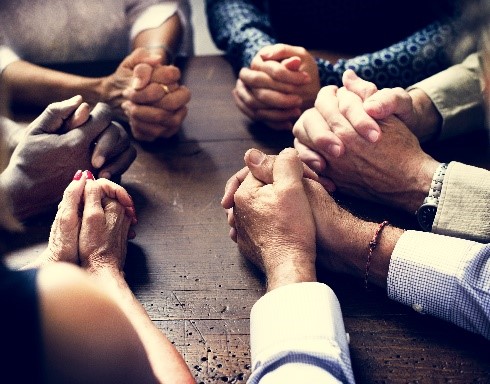
Racial Equity Book Club
Facilitator: Quentin Smith
Dates and Times: January 11 and January 28, 10:30 AM-12:00 PM
Format: On Zoom
Class Description: Please join us on January 7 & Jan. 28 (10:30 a.m. to noon via zoom ) when we discuss the New York Times best-seller historical novel Homegoing, by Yaa Gyasi. Ms. Gyasi was born in the African nation of Ghana but raised in America. Consequently, she views Africa and America through unique eyes.
To request the ZOOM link, please email: racialequitybuddies@fhcpresb.org.

About Books for Classes
Many of the books used in the following classes are widely available through local public libraries and major online booksellers. Most are also available in audio format. Inexpensive, used copies can be purchased through used booksellers like AbeBooks.com, Biblio.com, or ThriftBooks.com. Books for the Follow Me and Kerygma classes will be purchased by the Ministry of Adult Spiritual Growth. If you are able, please donate $8 per book to Forest Hill Church, specifying that it is for books for a class. But if this expense would be difficult for you, please consider the book to be our gift to you.
Tags: Adult Ed, spiritual creativity, WorshipNovember 28, 2022 Antoinette Richardson
Advent is a time of waiting, anticipating the coming of Jesus Christ in a physical body just like ours. Christians everywhere and throughout time have used Advent to reflect, to deepen their experience of God coming to us in the flesh.
For Advent this year, the members of the Ministry of Adult Spiritual Growth have decided to try something different. In the past, we have offered special Sunday morning Advent classes as a way for people could enhance their spiritual growth. However, many people find attending Sunday morning classes difficult or not appealing. We know that such classes reach only a small portion of our worshiping community.
At our most recent meeting, we considered ways to reach out to the entire church community during Advent. We decided to have an Advent Email each week on Monday morning, with a reflection about the theme of the week and its application to everyday life. We know that our fellow church member, Jean Reinhold, has written wonderfully poetic Advent reflections. So we asked, and Jean has generously agreed that we can use her writings for our Advent emails this year.
Each week during Advent, you will receive an emailed reflection by Jean on the theme of the week from the Ministry of Adult Spiritual Growth. You will find the first Advent email, on the theme of Hope, on the next page. We hope that you will read and re-read this reflection throughout the week as a way of deepening your experience of this time of waiting.
from Ann Williams and the entire Ministry of Adult Spiritual Growth
Tags: Adult Ed, advent, faith, growth, trust, WorshipSeptember 22, 2022 Kurt Haas
Facilitators: Lisa Vahey and Quentin Smith
Dates and Times: Saturday mornings, September 17 and October 1, 10:30 AM to 12:00 Noon. (More dates to be decided later.)
Description of Experiential learning opportunity:
A Racial Equity Buddy is a trusted companion with whom one can have difficult discussions on race. Two people agree to talk openly and honestly, without judgment, about their experiences and views regarding race and racism. They agree to meet consistently to listen to each other with open and curious minds.
This concept was introduced to Forest Hill Church about four years ago by a frequent visitor and friend of the church, Professor Mark Joseph, and some Buddies have been meeting for that entire time. They invite you to join them on a wonderful, colorful, discovery tour, learning about hidden historical figures and events while simultaneously learning about your own place in that history.
On Saturday morning, September 17 (10:30 to noon), we will meet on Zoom to continue this important program. New people are welcome to join those who began as Buddies earlier.
To sign up or to learn more, click here.
August 30, 2022 Antoinette Richardson
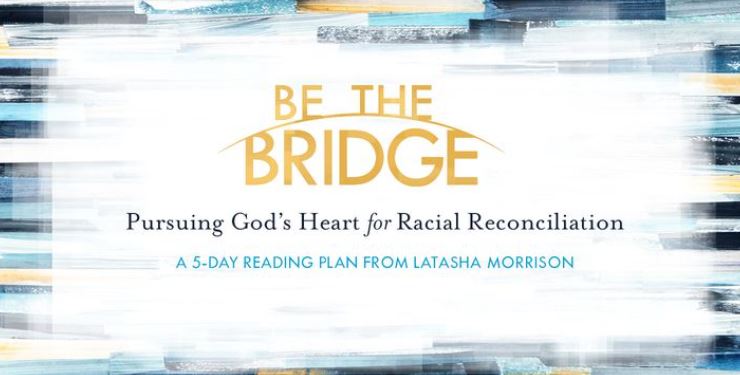
Exploring Racial Equity Buddies
The racial equity buddies concept was introduced to Forest Hill Church (“FHC”) about four years ago, by a frequent visitor and friend of FHC, Professor Mark Joseph*. Saturday morning, September 17, via ZOOM (10:30 to noon), Mark will lead us as we meet to continue this program. Those wishing to attend can respond to racialequitybuddies@fhcpresb.org or register here: https://fhc.breezechms.com/form/0a3ab6.
The Racial Equity Buddy Program Explained
I. A buddy is a trusted companion where difficult discussions on race can be had. To be successful, this must be a safe space where two people can be honest and explore their equity journey:
a) On the personal level of combatting racism, to better explore racial stereotypes and barriers that separate us, Dr. Joseph recommends partnering with someone of a different background, culture, or race. Our partner should be a person with whom we feel comfortable having a candid and frank discussion on these issues.
b) The partners should talk openly and honestly, without judgment, about one another’s experiences and views regarding race and racism. The key is to listen to each other and examine the world from your partner’s viewpoint. This shared experience, if faithfully done, should bring about greater understanding and appreciation of each other’s views and perhaps, result in a change in how each thinks and acts.
c) One’s racial equity buddy can be someone from the same race. In FHC, that is necessary due to the asymmetrical ratio of black and white members.
d) A racial equity buddy is NOT a personal trainer for his or her partner. Rather, where the buddies are of different races or cultures, the conversations should reflect the individual views of the participants. No black person should attempt to speak for or to represent all people of color and no white person should presume to speak for or to represent all white people.
e) Buddies are not assigned but choose to partner with each other. Help is available in making a match. Having multiple buddies is okay and changing buddies after a while is normal and beneficial.
II. The racial equity buddy concept is a method for enlarging and changing individual awareness and perspectives, which hopefully will lead to transforming those institutions they are a part of:
a) Our premise is that in our racialized society, we all urgently need to be on a personal journey to remove the injustice and inequity in the organizations and institutions that we have inherited, that we depend upon, that we support. That requires each of us to look with improved vision at our role and responsibility in perpetuating or deconstructing the racial injustice and inequity that is still embedded in the inherited organizations and institutions on which our way of life depends. Our goal is to get the members and participating friends of FHC on this journey and to begin it with a trusted buddy with a different background and perspective;
b) It must be appreciated that each individual is at a different point in their racial equity journey. We must be cognizant and appreciative that some of us are just beginning and are not as far along as others in this journey. However, if there is a willingness to begin such a journey, those individuals are welcome. With such a buddy, one must be even more sensitive to the principles that discussions are to be a safe place and nonjudgmental. Some of us will be walking and others running. One needs to learn about his/her buddy and act accordingly.
Other important aspects of the racial equity buddies include consistency, an open and curious mind plus a willingness to engage in respectful dialogue. Embarking on a racial equity journey requires a willingness to explore the history of non-white cultures in America. Be prepared to embark on a wonderful, colorful discovery tour and learn about hidden historical figures and events.
The impetus for resuscitating this program was Deborah Plummer’s book Some Of My Friends Are… The Daunting Challenges and Untapped Benefits of Cross-Racial Friendships, which we read and discussed in June. That book reminded us of the importance of cross-racial friendships and discussions and motivated many – both in and outside of FHC – to reimplement the racial equity buddy program.
As implied, the book club works in tandem with the racial equity buddies. Reading and discussing the material of the book club will fuel your racial equity work. The book club introduces various topics and explores non-white culture in a safe, non-judgemental atmosphere.
Our first book discussion takes place Saturday morning, October 25, where we will discuss the NY times bestseller and winner of the Christian Book Award, Be The Bridge, Pursuing God’s Heart For Racial Reconciliation, by Latasha Morrison. The book club adheres to the core principles of the equity buddies program outlined above.
PRAYING FOR CHANGE?
We must do more than pray. In the words of Fannie Lou Hamer,
“You can pray until you faint, but unless you get up and try to do something, God is not going to put it in your lap” Join us. Together we will pray and act!
*For those of you unfamiliar with Mark Joseph, here is a brief introduction. Mark Joseph, Ph.D. is the Leona Bevis/Marguerite Haynam Professor of Community Development at the Jack, Joseph, and Morton Mandel School of Applied Social Sciences at Case Western Reserve University. His research focus is mixed-income development as a strategy for promoting urban equity and inclusion. He is the co-author of the award-winning book Integrating the Inner City: The Promise and Perils of Mixed-Income Public Housing Transformation and co-editor of What Works to Promote Inclusive, Equitable Mixed-Income Communities. He is the Founding Director of the National Initiative on Mixed-Income Communities, which conducts research and consulting projects in cities across the US and Canada. He serves on the Editorial Advisory Boards of the journals Cityscape, Housing Policy Debate, Journal of Community Practice, and Journal of Race and Ethnicity in the City. He received his undergraduate degree from Harvard University, a Master’s and Ph.D. from the University of Chicago, was a Post-Doctoral Scholar at the University of Chicago, and a Harlech Scholar at Oxford University.
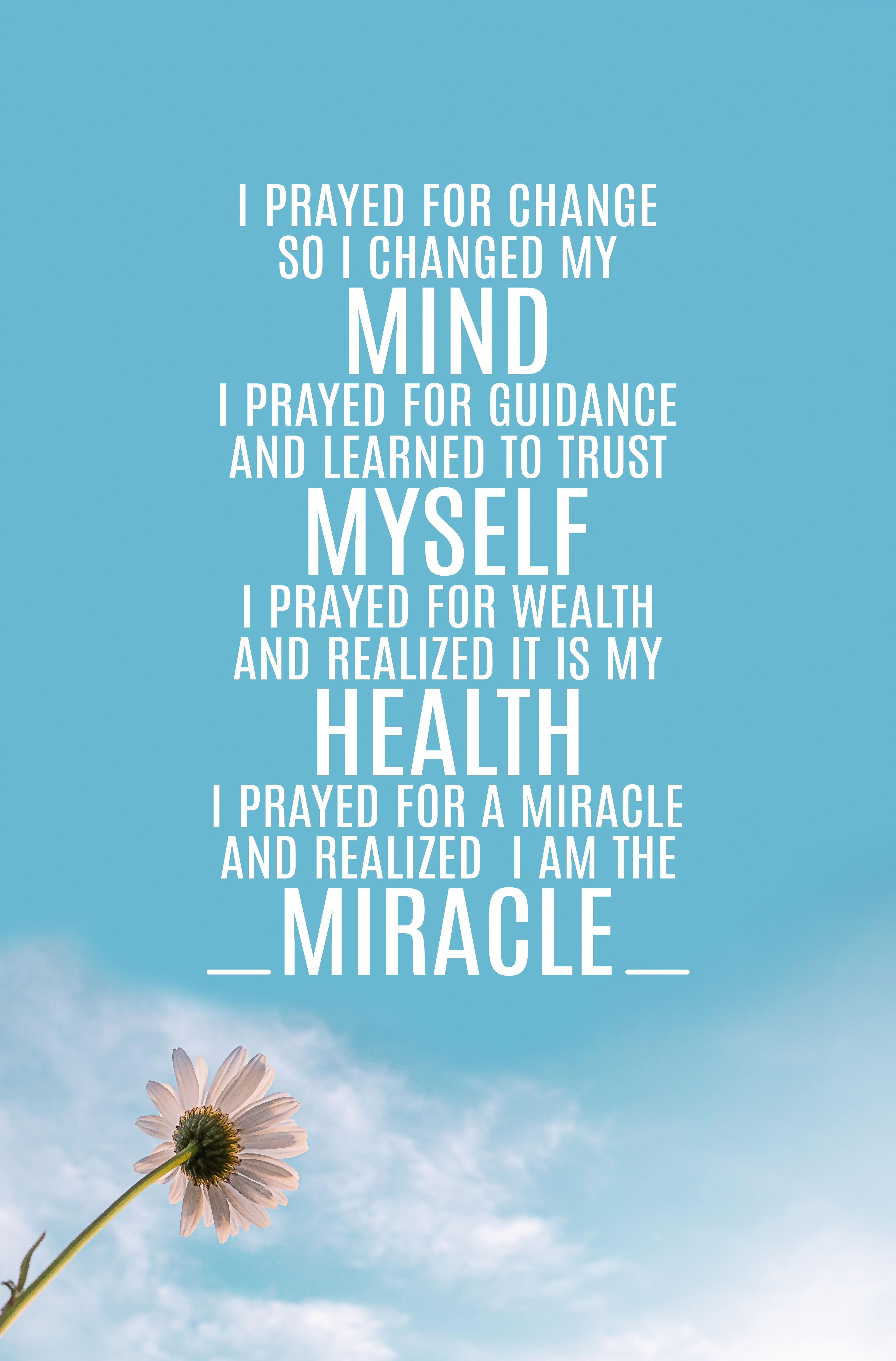
July 20, 2022 Antoinette Richardson
| This week, I encourage you to stop by the library to browse through the selection of magazines that round out the collection. If you used to enjoy going through the magazines in the library and have missed paging through them during the last few years, you will find a selection of older issues that you are welcome to take home, keep and read. These giveaway magazines are on a church pew by the library windows. They are free to anyone interested. ~Zivile Khoury |

May 19, 2022 Elizabeth Shaw
Our final book discussion before we break for summer will take place (via Zoom) Saturday morning, June 18 from 10:30 to 12 noon. We will be discussing Professor Deborah Plummer’s book “Some of My Friends Are…The Daunting Challenges and Untapped Benefits of Cross-Racial Friendships“. Why do neighborhoods tend to be primarily of one race? Why do both Whites and Blacks generally only have superficial friendships with one another? This book delves into these questions. Deborah L. Plummer, Ph.D., is a psychologist, author, university professor and speaker on topics central to racial equality, inclusion, and mutual respect. She is most passionate about creating inclusive organizations and building peaceful communities.
Send an email to BlackCaucus@FHCPresb.com to register.
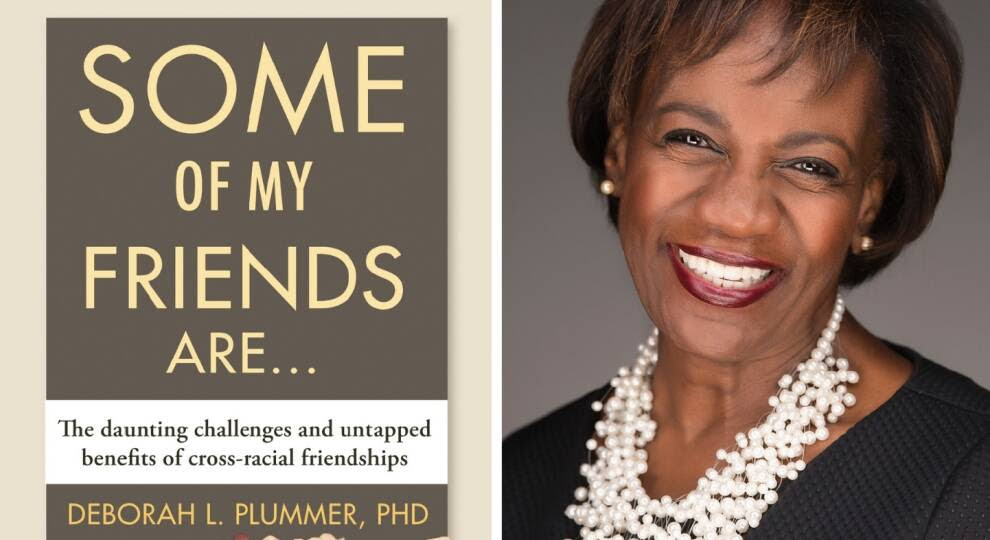
May 5, 2022 Antoinette Richardson
When: Sunday, May 22, 9:30-10:30 AM, before Sunday worship
Facilitator: Pastor John Lentz
Where: Hybrid in South Hall and on Zoom
Description: An informal discussion of our journey as a church into interfaith work towards social justice. Pastor John Lentz will share his memories of involvement with Northeast Ohio Alliance for Hope and Greater Cleveland Congregations. There will be time for others to also share their memories.
To Sign Up: https://fhc.breezechms.com/form/a8709f1462477280.
